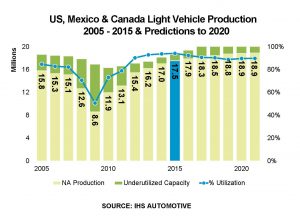As the Trump regime comes into office, it is trying to impose a whole series of new policies. It is facing serious opposition. Ideas from communist dialectics are vital in understanding this (and other) complex changes. Especially important is the idea of a dialectical contradiction, a struggle of opposite sides in a process that causes change. Contradictions in the world drive change and can force it in a direction that political actors don’t want or even understand.
US imperialism is caught up in a network of contradictions with its imperial rivals. Russian and Chinese capitalists are its most powerful opponents. They are challenging the struggling US empire on many fronts. The US also has serious conflicts with Iran and others in the Middle East. It has lesser conflicts with India, and the European Union (EU). Bush’s and Obama’s policies have only accelerated US imperial failure and decline, and strengthened the other imperialists.
The underlying causes of these rivalries are the economic conflicts that capitalist powers have with each other. They compete for access to raw materials, especially oil, along with metal ores, water and access to low-wage labor. The largest bone of contention, however, is markets for manufactured goods. Competition among capitalists creates surplus production capacity that they can’t find big enough markets to use. So they are often stuck with underused factories and unsold products in local or global crises of overproduction.
Right now there is an overproduction crisis in farm products in Europe. The EU is trying to find ways to cap the production of milk and other commodities. The steel industry in China has expanded enormously in the last 15 years. Overproduction there has led to a big drop in steel prices. This has caused problems for other steel producers in Britain and Japan. The EU is now putting new import taxes on Chinese steel.
There is also a worldwide overproduction of oil, lowering oil prices and creating crises in oil-exporting countries like Venezuela and Nigeria. Boeing and Airbus have created an overproduction of big commercial jets.
But the most widespread overproduction is in motor vehicles. China is now the world leader in motor vehicles, producing more than twice as many as the US. The world production capacity was 116 million vehicles in 2014, but only 87 million were produced. The automakers don’t expect steady expansion of the world market. Their unused capacity is likely to increase, as the graph shows. Trump’s threat of a new border tax is aimed at reducing auto production and profits by Japanese and German companies in Mexico, not helping US workers.
 Capitalists’ worldwide struggles for markets are intense, as are the conflicts over oil, sea-lanes, etc. Within these conflicts there is also some unity, however, including profitable trade relations. General Motors, for example, sells more cars in China than in any other country, including the US. China is the largest source of goods imported into the US.
Capitalists’ worldwide struggles for markets are intense, as are the conflicts over oil, sea-lanes, etc. Within these conflicts there is also some unity, however, including profitable trade relations. General Motors, for example, sells more cars in China than in any other country, including the US. China is the largest source of goods imported into the US.
Despite these common interests, contradictions among the imperial powers are growing sharper. Preparations for future wars are being made by all the big players. The rival powers also try to strengthen their hands for a future war through diplomacy. Trump appears to be using the strategy long argued for by former Secretary of State and war criminal Henry Kissinger. That strategy is to try to reduce the intensity of the US-Russia contradiction so that the US will not have to face a united China-Russia front in a war.
This is a reversal of the Bush-Obama policy of setting up a “wall” of NATO-affiliated countries on Russia’s European border, eventually to include Ukraine. Trump sees NATO as less important and may be willing to compromise with Russia on Ukraine, Crimea and Syria.
The outgoing Obama administration, along with some leaders in the US Congress and US intelligence agencies, has already been fighting against this policy shift. They see Russia as a more serious enemy than China. Some policy makers who were for the NATO wall against Russia are now backing down, however. Zbigniew Brzezinski, former advisor to President Carter and a big influence in promoting an aggressive policy against Russia, is now saying that Ukraine should stay out of NATO.
It is too soon to say whether Trump can overturn the past policy. It isn’t too soon to conclude that diplomacy can never eliminate imperialist rivalry. None of the established powers want to give up their profits to the new rising powers, that is, China and Russia, and to a lesser extent, India. The result of imperial rivalries is always war. Sometimes it is not directly between the rivals, but between lesser players that they arm and support, as Russia is doing in Syria and the US does in many countries. Eventually this will lead to World War between the major imperialists. Under capitalism, there is no way out of these contradictions. Communist revolution or imperialist war—That is the choice. Join us in the fight for communism.


